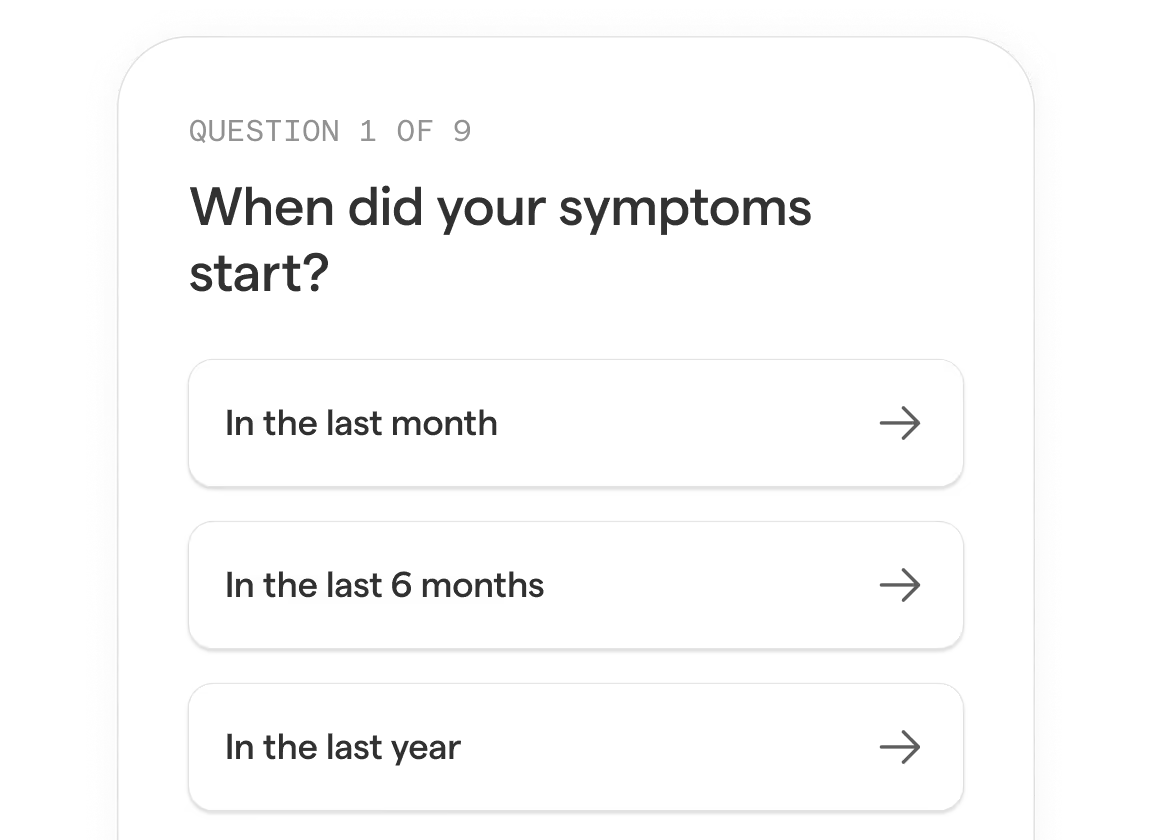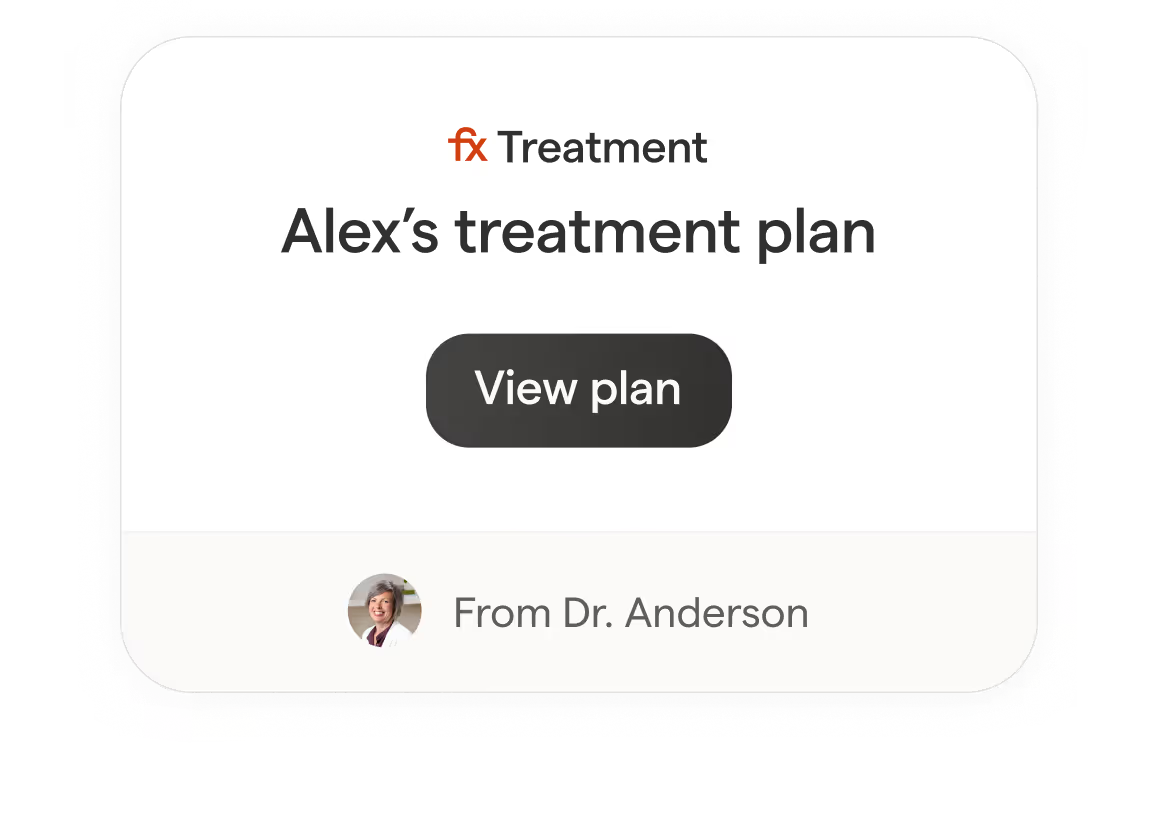Download the Felix App
Earn reward, visit our shop and get exclusive offers on the app
Download now

With Felix, you can get Pantoprazole prescribed by a licensed healthcare practitioner and delivered to your door for free.
Pantoprazole prescriptions are used as a treatment to manage stomach acid issues. There are a number of different conditions that Pantoprazole treatments can be used for, including things like taking Pantoprazole for acid reflux or GERD.
Pantoprazole, also known as pantoprazole sodium sesquihydrate, belongs to the family of medications known as Proton Pump Inhibitors (PPIs), and it’s available as an oral tablet that’s typically taken once daily, and can be increased to twice daily in some cases.
If you’d like to learn more about Pantoprazole prescriptions, as well as how the medication functions, click here for more information.
As a member of the Proton Pump Inhibitor (PPI) family of medications, Pantoprazole works by encouraging your stomach to produce less acid.
In turn, it can be used to treat a number of stomach acid-related conditions that can be quite uncomfortable and painful.
There are a variety of different stomach acid-related conditions that Pantoprazole medications may be suggested for, as a method of treatment or management. These conditions include:
Pantoprazole dosages for GERD or acid reflux are to be taken once daily, orally. They are to be swallowed whole, not to be crushed or chewed.
Pantoprazole prescriptions can be taken with or without food. However it’s recommended to take the tablets on an empty stomach — best 30-60 minutes before a meal, usually before breakfast.
Although it’s up to you when you choose to take your daily Pantoprazole dosage, it’s suggested that you take it in the morning each day, as studies have shown that this helps Pantoprazole medications function at maximum efficiency.
If you miss a dose of Pantoprazole, be sure to take it as soon as you remember. Unless it’s getting close to the time for your next dose, in which case, you should simply skip it. NEVER double-up on your Pantoprazole dosages, even if you missed your last tablet.
While Pantoprazole has a short half-life in your body (approximately 1 hour), it has been shown that its positive antisecretory effects increase with repeated dosages, which is part of the reason why Pantoprazole medications function best as a long-term treatment, i.e. 8 weeks.
It’s also been shown that Pantoprazole has shown the most efficient results when taken in the morning, rather than before bed, for its once-per-day dosaging.
It’s important to note that most of the side effects of Pantoprazole present mildly, and many patients that use Pantoprazole prescriptions don’t experience any side effects at all, or they lessen/disappear as their bodies adjust to the treatment.
With that in mind, the most common side effects of Pantoprazole include:
These are normal, and you should only be concerned if they begin to become severe or start to impact your daily quality of life.
In addition to these, if you start to experience any of the much more rare side effects of Pantoprazole (i.e., vision changes, jaundice, severe skin reactions, etc.), you should let your practitioner know right away.
They may be able to suggest an alternative medication to Pantoprazole without interactions that cause negative side effects or symptoms.
SIDE NOTE: For those wondering “how long do the side effects of Pantoprazole last?”, it will vary from person to person, but if the side effects of Pantoprazole you’re experiencing are affecting your quality of life, it’s best to talk to your practitioner about it.
There are some people who shouldn’t use Pantoprazole because interactions may occur. This includes:
As well, there are some people who should be extra cautious about accepting Pantoprazole online in Canada. These include people who:
Patients taking Pantoprazole who have low magnesium should also be extra cautious. Some potential signs of low magnesium include:
For those with any of these conditions, be sure to let your assigned practitioner know about them, before accepting a prescription for Pantoprazole online in Canada.
In addition to these concerns, there are a substantial number of medications that may interact with your Pantoprazole dosages, so make sure that your practitioner is aware of any/all medications or treatments you’re currently using to avoid negative interactions with Pantoprazole.
The cost of Pantoprazole will vary depending on a couple of factors (i.e., your Pantoprazole dosage, where you’re purchasing your medications, etc.).
The good news is that if you choose to buy Pantoprazole online in Canada with Felix, our pharmacy partners can deliver you Pantoprazole (and refills), directly to your home - at no extra cost to you!
Pantoprazole only has a half-life in your body of about an hour, so it starts to work within 1-2 of its ingestion.
The immediate impact of your Pantoprazole prescription can be impacted by the dosage of Pantoprazole that your practitioner has offered to you (i.e., 20 mg or 40 mg).
You may notice significant improvements to your acid levels in 2-4 days, while the medication becomes fully effective after 1-2 weeks of consistent use.
This is because the Pantoprazole medication’s effects compound, gradually reducing acid production over time.
Further reading








You might be eligible for an online Pantoprazole prescription in Canada with Felix, but before you’ll be able to access these types of medications, you’ll need to get assessed by a licensed clinician.
With Felix, this process is quick and seamless for patients across Canada through our secure, chat-based online assessment system. Just complete your assessment (it only takes a few minutes), and one of our practitioners will typically get back to your request within 24 hours.
If they believe that a prescription for Pantoprazole is right for you, based on your health, needs, and medical history, they’ll be able to provide you with one.
Plus, Felix’s pharmacy partners can then fill and ship your Pantoprazole, at no extra cost to you. You just need to pay your small assessment fee, as well as the cost of any prescribed medications. We’ll take care of the rest.
This question isn’t possible for Felix to answer generally, because each private insurance broker or benefits coverage plan will look different from one another.
Your best bet would be to reach out to your insurance representative ahead of making your request with Felix, so that you can provide any applicable insurance coverage information to your clinician during the assessment process.
If you do have any coverage, Felix can even bill your insurer directly for your Pantoprazole (and refills) to save you the time and trouble.
In regards to provincial health plans, what’s available in one province for coverage, may not be available in others. It will largely depend on where you live, and the guidelines set within that specific province.
When coverage is available in a province, it’s also important to remember that it will only be eligible under certain specific criteria for eligibility, so you’ll have to check your local government regulations to see what’s available in your region.
Yes, you can buy Pantoprazole online in Canada, but before you can access these medications, you’ll need to have your health and medical history reviewed by a licensed clinician - like the ones you can find at Felix!
All you have to do to get started is complete a short online assessment (at your convenience), and one of our practitioners will get back to your request as soon as possible.
Once they’ve evaluated your condition and medical history, they can determine whether Pantoprazole dosages might be a beneficial part of your treatment plan. If so, they can provide you with an online Pantoprazole prescription in Canada.
Best of all, Felix and our pharmacy partners can deliver your Pantoprazole, at no extra cost to you. We can even arrange for future Pantoprazole refills to be automatically filled and shipped to you, so that you don’t have to worry about running out of your essential medications.
It’s just another one of the many ways that Felix is helping Canadians take back control of your health and quality of life, so that you can get back to living life on your terms - the way it should be.
Felix is Canada’s first truly integrated healthcare platform. We provide on-demand treatment for everyday health needs like weight loss, mental health, sexual health, and more. Founded in 2019, our digital-first approach to healthcare includes everything from diagnosis to prescription — all accessible from the comfort of home.
No. Felix provides a faster, hassle-free way for you to get a treatment plan for certain conditions, but our service does not replace your primary care provider. For matters that extend beyond obtaining a lifestyle treatment safely and easily, we encourage you to consult your primary health practitioner in person — whether for checkups, personal health concerns, or to inform them about your current treatments or treatment plans.
Absolutely. Our online assessments have been designed to ask all the necessary questions required for diagnosis. We've worked with specialists to create an assessment process that can provide sufficient information for the healthcare practitioner to determine whether or not you are eligible for a prescription and craft an appropriate treatment plan.
Call 911 or proceed to your nearest emergency room immediately. Felix is not intended for medical emergencies. Once the emergency has been addressed or resolved, contact your prescribing practitioner to inform them of your experience as this may impact your current treatment plan.
Anyone who is 18 years or older (16 or older for acne and birth control prescriptions), and is located in Alberta, British Columbia, Manitoba, Newfoundland and Labrador, Nova Scotia, Prince Edward Island, Saskatchewan or Ontario. We cannot ship treatments outside of these provinces at this time.
After creating an account, you will complete a medical assessment for evaluation by one of the Felix healthcare practitioners.
During your assessment, you will have the opportunity to send your practitioner questions via secure messaging.
In most cases, practitioners will complete your assessment with secure messaging alone but sometimes they may determine you require an audio or video visit and/or further diagnostic testing to help determine the best treatment plan for you.
If your practitioner has determined a prescription treatment is appropriate, they will approve your visit and write you a prescription. Our pharmacy will then ship your prescription to your home.
You’ll be able to message your healthcare practitioner if you have questions or want to make changes to your treatment at any time.
No. We use an asynchronous telemedicine model so you can complete your online visit in your own time and we save your progress so you can come back later to finish it.
If you are completing a visit in the mental health or weight loss categories, your healthcare practitioner may require a phone or video call to discuss your medical profile further during the assessment process.
Most assessments do not require a phone or video conversation. Once a prescriber has reviewed the info in your assessment they will respond to you via secure instant messages that you can access within your Felix account.
If you are completing a visit in the mental health or weight loss categories, your healthcare practitioner may require a phone or video call to discuss your medical profile further during the assessment process.
You can expect to receive a response from a healthcare practitioner within 24 hours of submission. If you’ve been waiting longer than this, please reach out to our Patient Support team through the chat bubble in the bottom right corner of your account or our Contact Us page.
No. A visit with a licensed healthcare practitioner is required for all treatments currently provided through Felix’s service.
Not long. After completing your assessment, a practitioner will generally respond within 24 hours, and often much sooner.
Treatment plans will be processed within 2-4 business days of your approval date if there is nothing blocking fulfillment.
All packages usually takes 2-3 business days. You will receive an email with your tracking number once your treatment has been shipped.
Absolutely. All Felix shipments arrive in a nondescript blister package so you can have your treatment shipped wherever makes sense for you as long as there is someone there to sign for it.
A signature upon delivery may be required.
There is currently no cost to have your treatment shipped to you from our Felix Pharmacy network.
Yes, your security is paramount to Felix’s mission. Personal health information provided during your medical assessment is strictly and legally confidential between you and the Felix healthcare practitioner.
Beyond that, all your account information (including the medical assessment, credit card, and shipping information, etc.) is also stored safely and securely. Felix is compliant with all federal and provincial health privacy legislation. It is our duty to protect your data with comprehensive security infrastructure and stringent data policies to ensure it stays private and secure.
Read more on our Privacy Policy.
Yes! In Canada, only a licensed healthcare practitioner can write a prescription, and only a registered pharmacist can fill that prescription. We are supported by leaders in the Canadian pharmacology and specialized medical fields. Felix adheres strictly to all the regulations set forth by all applicable Colleges of Pharmacists and Colleges of Physicians and Surgeons in which we operate.
Absolutely. All prescriptions obtained via Felix are provided by licensed Canadian healthcare practitioners—the same as you would get at a hospital, doctor’s office, or clinic. These practitioners do not provide prescriptions unless they deem it medically safe and appropriate to write them based on your medical profile and assessment answers. Our assessments have been crafted by the practitioners on our medical team. Finally, all Felix Pharmacies are provincially accredited just like any retail pharmacy.
Your privacy is our top priority. All your data is 256 bit SSL/TLS encrypted, and we take significant steps to keep your data secure. You can read our Privacy Policy for more information.
Felix charges a fee for the online visit. In most cases the fee is $40 but varies by treatment category. The visit fee includes a prescription valid for up to a year (depending on the condition) and on-going support from the healthcare practitioner or pharmacist.
It depends. Treatment costs vary but will be in line with what you would pay at a pharmacy in person. You will see the estimated cost of your treatment before insurance, during the online visit but will only be billed for medication costs for your prescription once it is approved and sent to our pharmacy. Once approved, your treatment and payment will be processed within one to two days.
Keep in mind that you won’t necessarily need to pay the full price yourself. If you have insurance, Felix’s partner pharmacies will bill your insurer directly. You may also be eligible for financial support in your province.
We accept all major credit cards for any aspect of your treatment not covered by insurance or other financial support
Treatment coverage varies greatly between different insurance plans.
The good news is that if you are covered, Felix can bill your insurer directly, and then process your treatment plan at no additional cost to you. We recommend that you upload your private and/or provincial benefit card during the online visit so that our pharmacy partner can apply any coverage you are eligible for before processing your treatment plan.
Insurance coverage for treatment plans through Felix doesn't include the cost of your visit.
A Felix online visit is considered asynchronous since it is conveniently completed through a secure chat bases system. Currently, asynchronous visits are not covered by insurance or provincial health plans so you will be charged a visit fee, depending on the category of treatment you are requesting.
Medication coverage varies greatly between different plans, provinces, and has specific criteria that determine eligibility. For private insurance, we recommend contacting your benefits administrator with your details and the Drug Identification Number (DIN) and the drug name to determine your coverage.
For more details on provincial health plan coverage see below:
Alberta: Learn more about AHCIP here. Search for covered drugs here.
British Columbia: Learn more about MSP here. Search for covered drugs here.
Manitoba: Learn more about MHSIP here. Search for covered drugs here.
Newfoundland and Labrador: Learn more about MCP here. Search for covered drugs here.
Nova Scotia: Learn more about MSI here. Search for covered drugs here.
Ontario: Learn more about OHIP+ here. Search for covered drugs here.
Prince Edward Island: Learn more about Health PEI here. Search for covered drugs here.
Saskatchewan: Learn more about Saskatchewan Health Coverage here. Search for covered drugs here.












